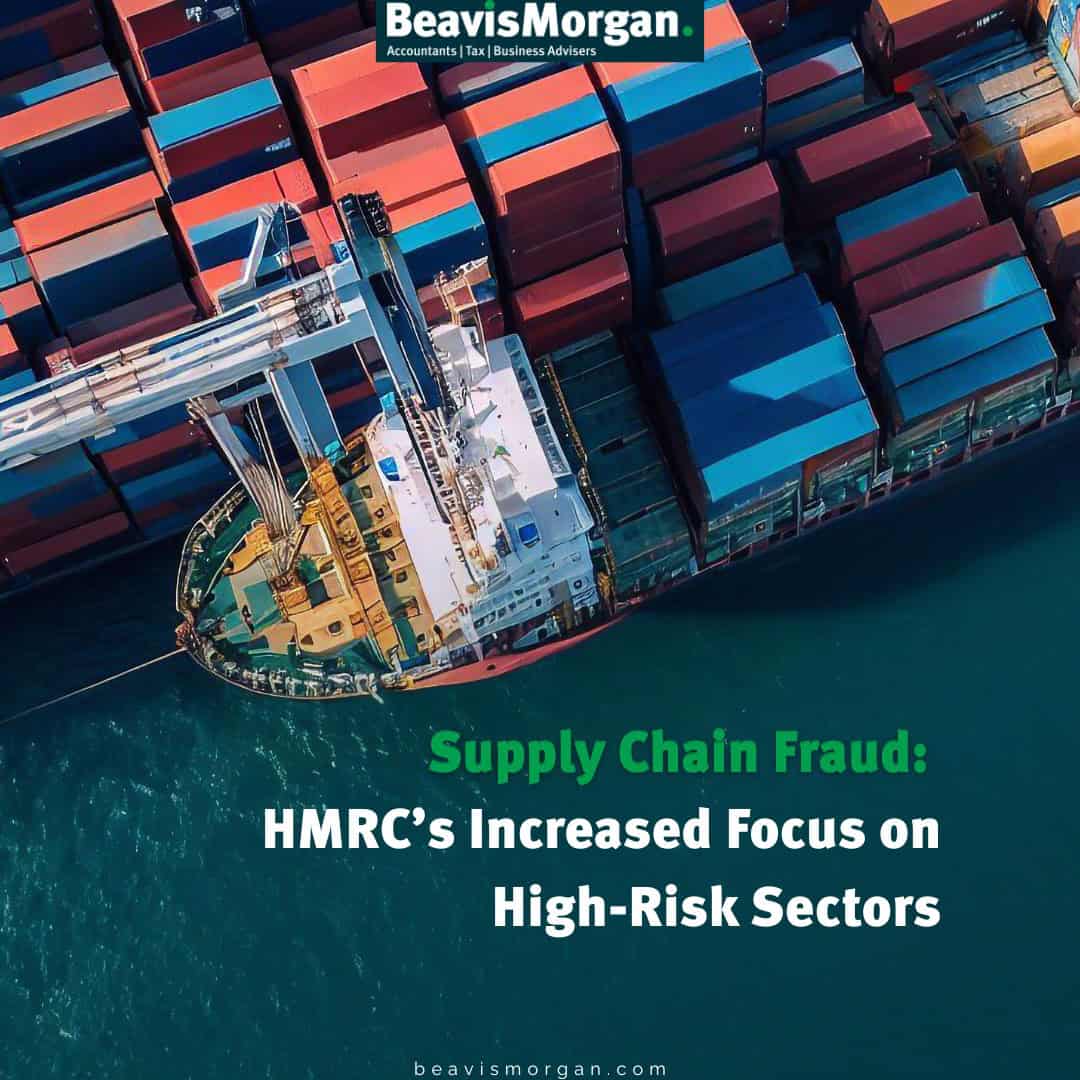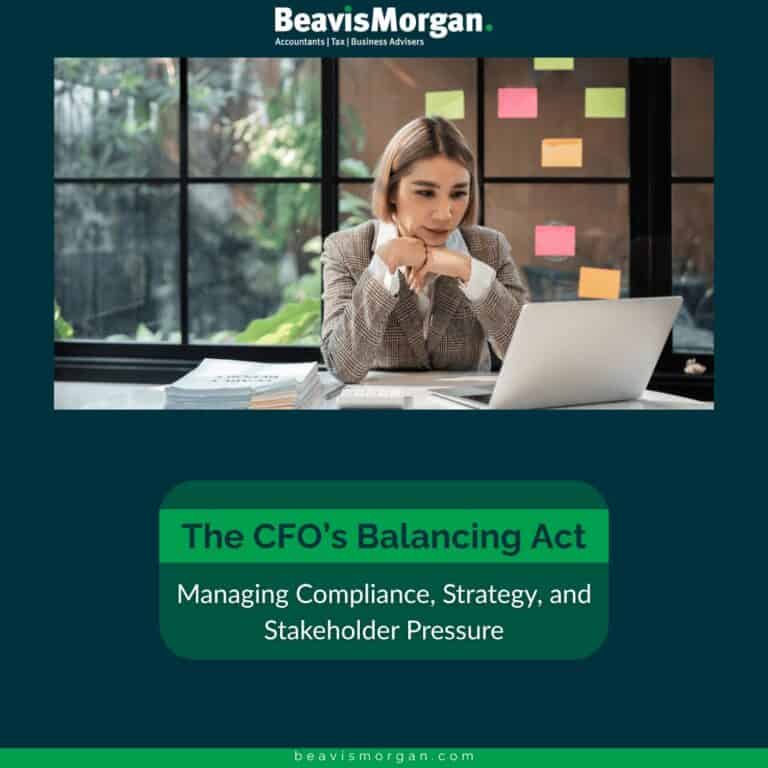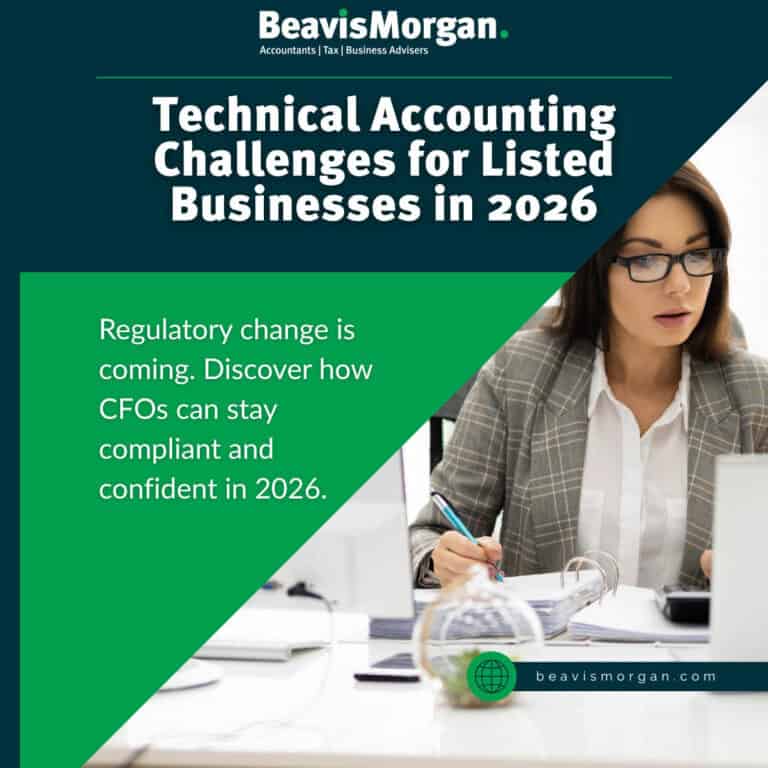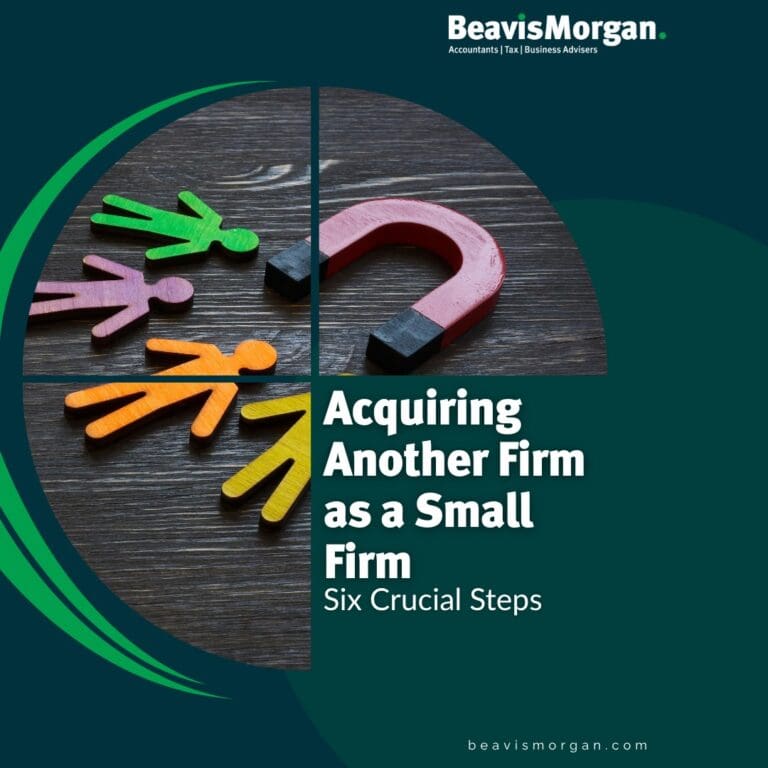HMRC has made it clear: supply chain fraud is one of its top enforcement priorities. Sectors that are complex, labour-intensive, and reliant on multiple suppliers – such as hospitality, retail, and construction – are firmly in the spotlight.
Even where a business has no direct involvement in fraudulent activity, HMRC can still hold it liable if it fails to demonstrate “reasonable care” in its supply chain. For SMEs, this creates a serious risk of unexpected tax bills, penalties, and reputational damage.
Why SMEs Are at Risk
Supply chain fraud often arises where multiple subcontractors, temporary labour, or cash transactions make it difficult to verify the integrity of every supplier. HMRC is particularly focused on:
- VAT fraud/missing trader fraud – where a supplier charges VAT but disappears before paying it to HMRC.
- Labour fraud – where PAYE and NIC in the labour supply chain are not correctly paid over.
- Fake suppliers – fraudsters posing as legitimate businesses to siphon off payments or avoid tax.
For SMEs, the challenge is twofold: limited internal resources to monitor suppliers, and a tendency to prioritise cost and speed over compliance. HMRC, however, expects businesses of all sizes to have robust checks in place.
HMRC’s Approach
HMRC takes a tough stance on supply chain fraud. Key enforcement actions include:
- Investigations – tracing transactions through the supply chain to identify fraudulent activity.
- Denying VAT reclaims – under the legal principle from Axel Kittel & Recolta Recycling SPRL, businesses can be denied VAT recovery if they “knew or should have known” of fraud.
- Imposing penalties – financial penalties can apply even if the fraud was carried out by a third party.
- Criminal liability – in severe cases, directors or business owners may face prosecution.
This approach means that “I didn’t know” is no defence. Businesses must prove they have taken all reasonable steps to verify suppliers.
What HMRC Expects from Businesses
SMEs must be able to demonstrate:
- Supplier due diligence – checks on legitimacy, VAT registration, and trading history.
- Accurate documentation – ensuring invoices, contracts, and payment terms are correct.
- Ongoing monitoring – not just at onboarding, but through the life of the supplier relationship.
- Training and awareness – so staff can spot warning signs.
- Clear record-keeping – to evidence the checks undertaken if HMRC investigates.
5 Signs of Supply Chain Fraud to Watch For
- Unusual VAT behaviour
- Suppliers unable to provide valid VAT numbers or inconsistent VAT charges.
- Unclear ownership or structure
- Difficulty establishing who controls the supplier or whether they are properly registered.
- Unrealistic pricing
- Discounts or payment terms that appear too good to be true.
- Unreliable documentation
- Invoices, contracts, or delivery notes that are incomplete, inaccurate, or inconsistent.
- Resistance to checks
- Suppliers unwilling to provide references, financial details, or submit to basic due diligence.
How SMEs Can Protect Themselves
Taking a proactive approach is the best defence. Practical steps include:
- Know your suppliers – request company registration details, VAT numbers, and references.
- Check credit ratings – use tools to confirm financial standing and trading history.
- Scrutinise invoices – watch for inconsistencies, unusually high discounts, or unusual payment requests.
- Review VAT claims – ensure all VAT reclaimed relates to genuine, traceable transactions.
- Audit regularly – schedule periodic reviews of suppliers and supply chain processes.
- Embed compliance culture – train staff to question irregularities and escalate concerns.
How Beavis Morgan Can Help
At Beavis Morgan, we work with SMEs across sectors to strengthen compliance and reduce the risk of being caught in HMRC’s net. Our support includes:
- Supply chain risk assessments – identifying weak points in your supplier processes.
- VAT and tax compliance reviews – ensuring your VAT recovery is robust and defensible.
- Governance and control frameworks – designing practical systems that evidence “reasonable care.”
- Responding to HMRC enquiries – advising and representing you in disputes and investigations.
- Training and awareness – equipping your team with the knowledge to spot red flags.
- Tax investigations service – covering the cost of professional fees in the event of an HMRC investigation.
Our team combines in-depth technical expertise with a commercial understanding of the pressures SMEs face. We help you balance efficiency and cost with the controls HMRC requires, so you can protect your business and focus on growth.
Final Word
Supply chain fraud isn’t limited to large corporates. SMEs in high-risk sectors are very much on HMRC’s radar, and the consequences of being caught out – even inadvertently – can be severe.
By reviewing your supply chain processes now, tightening documentation, and evidencing reasonable care, you not only reduce tax and legal risks but also strengthen your reputation with clients, investors, and regulators.
At Beavis Morgan, we’re here to support you every step of the way.
If you’re an SME in hospitality, retail, construction or any other sector and would like to review your supply chain risks, contact your usual Beavis Morgan adviser or email info@beavismorgan.com. Our team can help you take practical steps to protect your business, reduce risk, and stay on the right side of HMRC.





